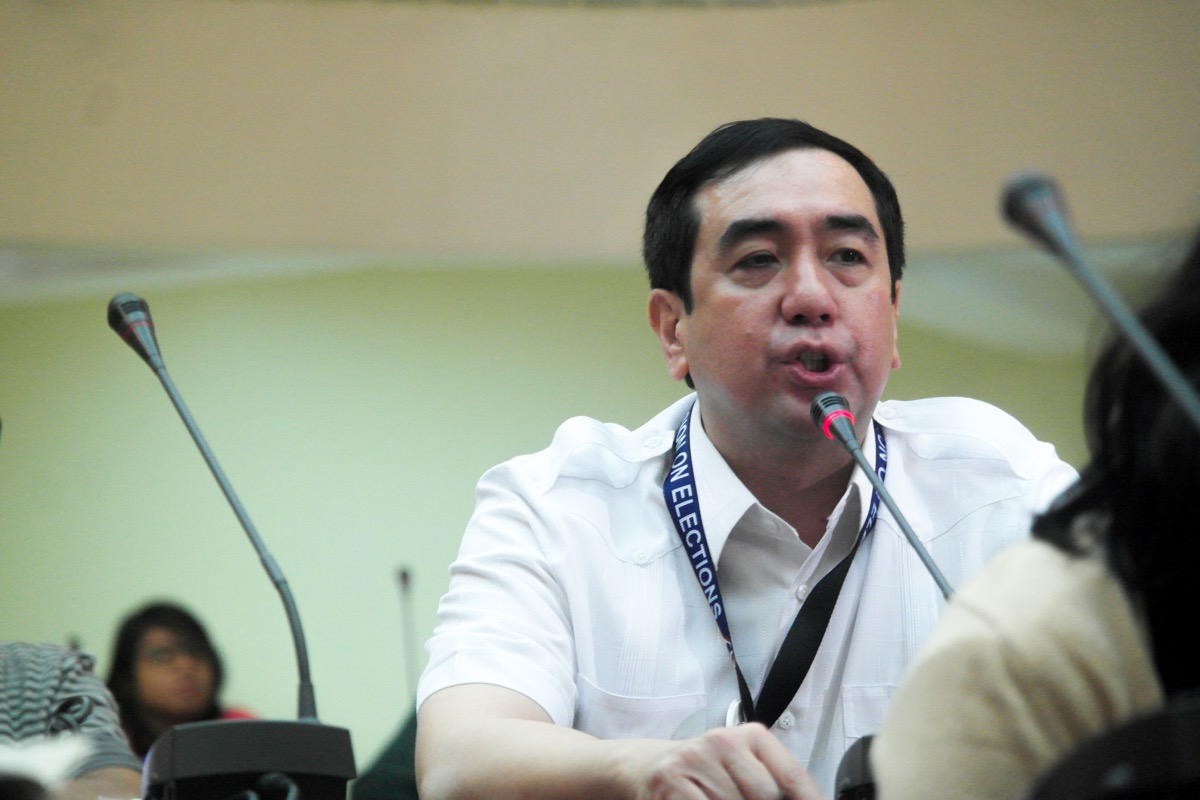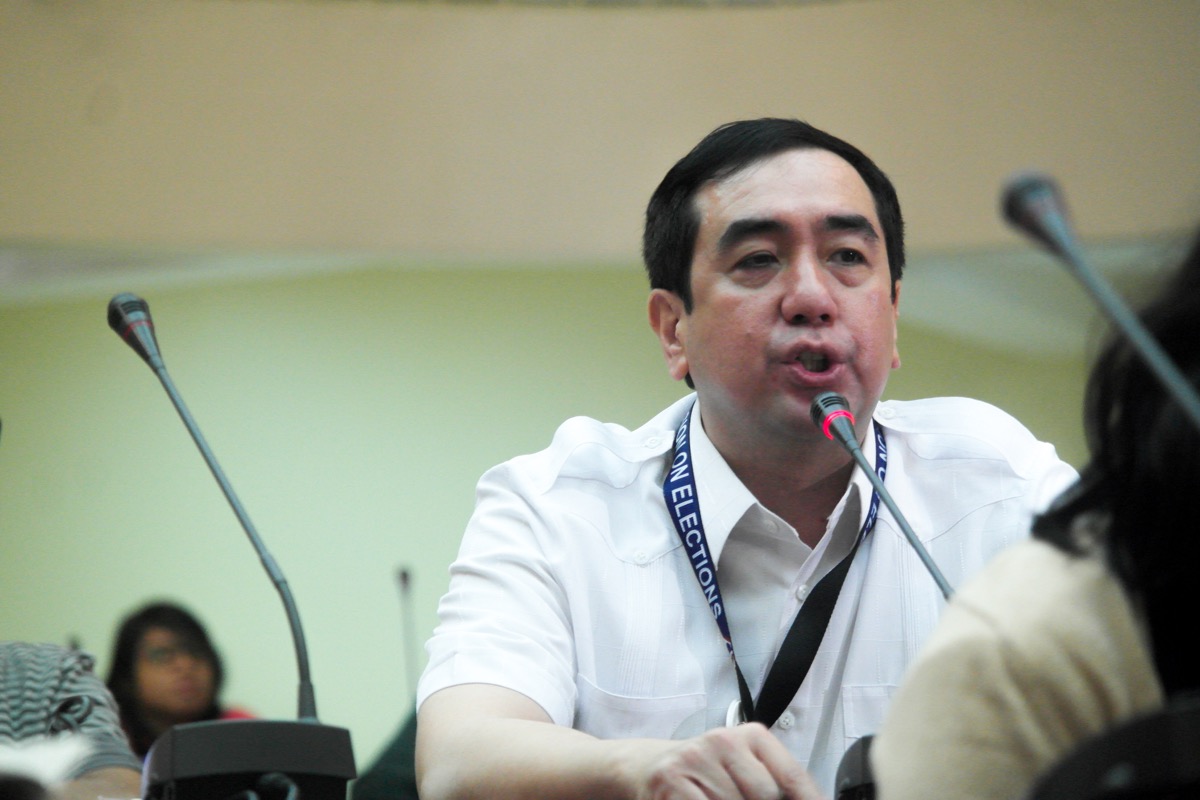By MARIA FEONA IMPERIAL
A week before official campaign period kicks off, the Commission on Elections has warned candidates to comply with rules on posting campaign materials – else be shamed in public and be sanctioned for committing an election offense.
The Comelec signed on Tuesday an agreement with the Department of Public Works and Highways and the Metro Manila Development Authority authorizing officials of these agencies to tear down unlawful campaign materials.

Unlawful campaign materials are those posted outside the designated common poster areas such as public structures, based on the implementing rules and regulations (IRR) of the Fair Elections Act promulgated by Comelec on Tuesday.
These include publicly owned electronic announcement boards, waiting sheds, sidewalks, traffic signage, bridges, major thoroughfares and government-owned buildings.
It is also considered illegal to display election propaganda outside of common poster areas and in private properties without the owner’s consent.
No posting on public terminals despite SC ruling
The poll body also retained public transport terminals in the list of areas where posting of campaign materials is prohibited. This despite a 2015 Supreme Court decision that ruled the move as unlawful.
In 1-United Transport Koalisyon vs Comelec, the high court declared that government restriction on posting of election propaganda is a breach of a candidate’s right to free speech.
Comelec earlier deleted provisions pertaining to public transport terminals, but it is now again included the IRR of the Fair Elections Act, provided that these terminals are controlled and owned by the government.
Public transport terminals include bus terminals, airports, seadocks, piers and train stations such as the Metro Rail Transit and Light Rail Transits.
Clean and green 2016 polls
The Comelec also reiterated its call for a clean and green elections.
Candidates are required to indicate “this material should be recycled” in all their printed election paraphernalia.
Apart from posting campaign materials outside of designated spaces, the Comelec urged the public to report cases of excessive use of plastic and nonrecyclable materials, and irresponsible disposal of campaign paraphernalia.
Under Section 264 of the Omnibus Election Code, persons who commit election offenses face one to six years’ imprisonment, disqualification to hold public office and removal of right to vote.
Candidates told to remove premature campaign posters
Meanwhile, the poll body reminded candidates who have aired and posted campaign materials before the official campaign period to start cleaning up their mess.
Otherwise, they will be sanctioned for committing an election offense.
Under the fair elections law, candidates are required to remove all prohibited forms of election propaganda at least 72 hours or three days before the official campaign period.
Prohibited forms of propaganda include any names, logos, brands, insignias, color motifs, initials and other forms of identifiable graphical representations placed by incumbent national and local officials on public structures.
Without a law prohibiting premature campaigning in the Philippines, candidates have taken advantage of posting and airing election propaganda even before they file their certificates of candidacy.
Whether or not these early forms of campaigning were made in good taste remains up for voters to judge.
In Penera vs Comelec, the Supreme Court ruled that a person shall only be considered as a candidate at the start of the campaign period for which he filed his certificate of candidacy.
In effect, unlawful acts committed by a candidate shall only be counted beginning the campaign period.
Parameters for disclosure of donors set
The poll body also set technical parameters on the disclosure of funders of print and broadcast election propaganda, which Comelec Commissioner Christian Robert Lim suggested during the Jan. 11 public consultation on the fair election law. (See Comelec eyes reforms in fair election law)
Lim earlier stressed the need to define what are considered “reasonably legible or audible” for disclaimers such as “political advertisement paid for” and “political advertisement paid by.”
According to the IRRs, the disclosure must be of sufficient type size to be clearly readable by the reader.
In particular, it should follow a 12-point type size when used in signs, posters, flyers, newspapers and magazines, or other printed material that measure no more than two feet.
The notice must be contained in a printed box, set apart from the other contents of the sign, poster and flyer, or news advertisement.
The notice must also be printed with a “reasonable degree of color contrast between the background and the printed statement,” for instance, black text on white background.
For broadcast ads, the notice must appear in letters equal to or greater than 4 percent of the vertical picture height, must be visible for the duration of the broadcast advertisement and must also be displayed with a reasonable degree of color contrast between the text and the background.
The poll body observed that the font size used for the required disclosure in 2013 was reduced and the time of display shortened, making them difficult to be seen or heard.
The official campaign period for candidates vying for national posts runs from Feb. 9 to May 7. Candidates for local positions can officially campaign starting March 25.
